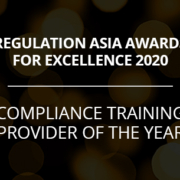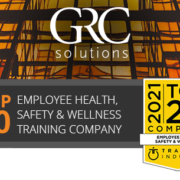Course Description
This course provides training on the requirements for collecting and handling personal information in Malaysia
Failure to properly collect, handle and protect people’s personal information can put businesses at considerable financial and reputational risk. Malaysian and European laws impose strict requirements on businesses operating in Malaysia, and all staff need to be adequately trained to meet these requirements and understand what is required of them when dealing with individuals’ personal information.
This course covers all the areas of privacy law that are likely to be encountered by Malaysian businesses. Three modules deal with the provisions of the Malaysian Personal Data Protection Act (PDPA), which sets out the rules for collecting, storing, using, handling, anonymizing, correcting and deleting personal data. It applies to all individuals, businesses and associations that operate in Malaysia or handle the personal data of Malaysians. It covers data protection and breach notification.
The European Union General Data Protection Regulation (GDPR) contains very strict privacy protection provisions. It applies to Malaysian organisations that deal with EU citizens or with their personal data (for example, if they have a website with any of the EU languages other than English.) As the EU is Malaysia’s third largest trading partner it is crucial that Malaysian businesses understand and comply with its requirements.
The lessons in this course provide scenarios and case studies that illustrate the sorts of privacy issues that staff can expect on a daily basis, and bring the business of privacy protection to life.
The PDPA was seen as a key enabler to strengthen consumer confidence in electronic commerce and business transactions …
– Shanthi Kandiah, SK Chambers The Privacy, Data Protection and Cybersecurity Law Review – Edition 5 October 2018
Who should do this training?
The course is suitable for all staff who handle personal information. Moreover, all staff, including directors and senior managers, should be familiar with the introductory material in course one and the GDPR material in course four.
For more information on other GRC Solutions’ privacy training resources:
Australia
Privacy – Covering the Privacy Act and the Australian Privacy Principles
Privacy for Schools – Covering the Privacy Act and the Australian Privacy Principles as they apply to schools
Health Privacy – Health businesses collect and maintain sensitive personal information
Australia – Financial Services
Financial Services Privacy Training – covering the Privacy Act and the Australian Privacy Principles
Credit Reporting – covering the Credit Reporting Act
Health Privacy
New Zealand
Privacy – New Zealand – covering privacy in New Zealand under the 2020 updates to the law
Europe
General Data Protection Regulation – covering the GDPR – which has global implications
Singapore
Data Protection Singapore – covering the Personal Data Protection Act 2012 and also the implications of the GDPR
California
California Consumer Privacy Act
Course Outline
Module one: Protecting Personal Data
Module two: Protecting Personal Data (Advanced)
Module three: Preventing and responding to data breaches
Module four: GDPR







